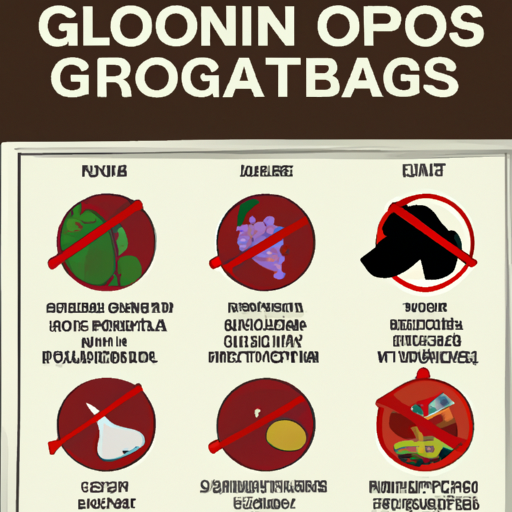As a caregiver, your primary concern is always the well-being of those you care for, and it’s no different when it comes to your furry friend. However, not all human food is safe for dogs. Below, we’ll explore a detailed list of foods that are harmful to dogs.
1. Chocolate
Chocolate contains a stimulant called theobromine, which is toxic to dogs. While humans can easily metabolize theobromine, dogs process it more slowly, allowing it to build up to toxic levels in their system.
- Symptoms: Vomiting, diarrhea, rapid breathing, increased heart rate, seizures
- Types of chocolate: Dark chocolate and unsweetened baking chocolate carry a high risk, while milk chocolate and white chocolate have lower amounts of theobromine but are still dangerous.
2. Xylitol
This sweetener is often found in sugar-free products like gum, baked goods, and toothpaste. Even small amounts of xylitol can cause a rapid drop in a dog’s blood sugar, leading to liver failure.
- Symptoms: Loss of coordination, vomiting, seizures
- Common products containing xylitol: Sugar-free gum, candy, baked goods, and toothpaste
3. Grapes and Raisins
It’s not clear why, but grapes and raisins can cause kidney failure in dogs. And just a small amount can make a dog sick.
- Symptoms: Vomiting, lethargy, depression
- Products to avoid: Fruit salad, raisin bran, and certain types of cookies and muffins
4. Onions and Garlic
Onions and garlic can kill red blood cells in dogs, leading to anemia. This is true for all forms of onions and garlic, including powdered, raw, cooked, or dehydrated.
- Symptoms: Weakness, vomiting, breathlessness
- Foods to avoid: Pizza, pasta, and Asian cuisine
5. Avocado
Avocado contains a toxin called persin, which can cause vomiting and diarrhea in dogs.
- Symptoms: Vomiting, diarrhea
- Products to avoid: Guacamole, avocado toast
6. Alcohol
Alcohol has the same effect on a dog’s liver and brain that it has on humans. But it takes a lot less to hurt your dog.
- Symptoms: Vomiting, diarrhea, difficulty breathing, abnormal blood acidity, coma, death
- Products to avoid: Any alcoholic beverages
7. Caffeine
Just like chocolate, dogs are more sensitive to caffeine than humans are. While one or two sips won’t kill them, it doesn’t take a huge amount to cause serious consequences.
- Symptoms: Restlessness, rapid breathing, heart palpitations, muscle tremors, seizures
- Products to avoid: Coffee, energy drinks, certain types of soda, chocolate
8. Dairy Products
While not immediately life-threatening, dairy products can cause digestive problems in dogs, including diarrhea and gas. Dogs do not have a significant amount of lactase, the enzyme that breaks down lactose in milk.
- Symptoms: Diarrhea, gas, vomiting
- Products to avoid: Milk, cheese, ice cream
FAQ
Can dogs eat peanut butter?
Yes, dogs can eat peanut butter as long as it doesn’t contain xylitol. Always check the label before giving your dog peanut butter.
Are bananas safe for dogs?
Yes, bananas are safe for dogs. They are a good source of vitamins and minerals. However, they should be given in moderation due to their high sugar content.
What should I do if my dog eats something toxic?
If you suspect your dog has eaten something toxic, call your vet immediately. If it’s after hours, call an emergency animal clinic or the ASPCA Animal Poison Control Center at (888) 426-4435.
Are there any human foods that are good for dogs?
Yes, many human foods are safe and healthy for dogs, including certain fruits, vegetables, lean meats, and grains. Always be sure to research or ask your vet before introducing a new food to your dog’s diet.
Remember, what’s healthy for you might not necessarily be healthy for your dog. Always keep a close eye on what your furry friend is consuming to ensure they live a happy, healthy life.



